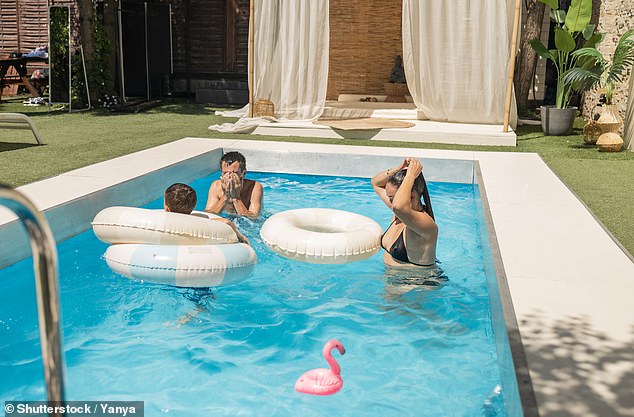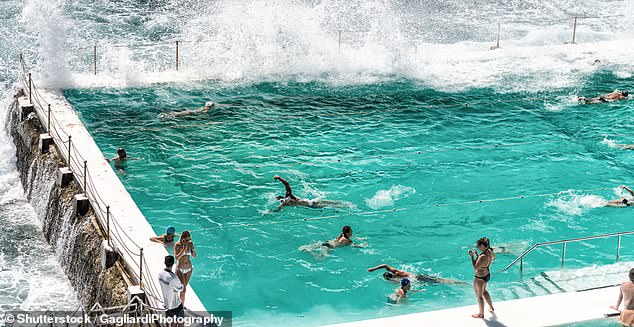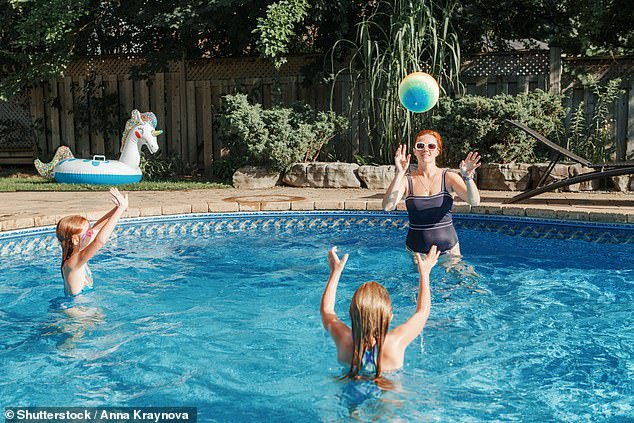Health authorities have issued an urgent health warning on a very sensitive issue: how long you should avoid the pool if you have diarrhea.
As the weather warms up over Christmas and throughout the summer, large numbers of Australians will be using swimming pools, private or public, to cool off.
But these fun activities also lead to an increase in cryptosporidiosis, a gastrointestinal disease.
It is caused by the microscopic parasite Cryptosporidium and is a common cause of acute diarrhea in young children.
Doctors’ advice is to avoid swimming in a pool for two weeks after experiencing diarrhea symptoms.
In addition to infecting humans, Cryptosporidium occurs in a variety of animals, including cattle, sheep, dogs, and cats.
Queensland Chief Health Officer Dr Heidi Carroll said cryptosporidiosis is usually acquired through ingestion of contaminated water or food, or through contact with infected people or animals.
“A common mode of transmission is by ingestion of water contaminated with Cryptosporidium parasites and this can occur when people accidentally swallow water in facilities such as swimming pools or other swimming areas,” he said.
Health authorities have issued an urgent health warning on a very sensitive issue: how long you should avoid the pool if you have diarrhea. stock image
“People may not realize they may be contagious for some time after diarrhea symptoms stop, so we ask that they avoid swimming for 14 days after experiencing these symptoms.”
Over this past summer and autumn, Queensland experienced a significant and sustained increase in cryptosporidiosis cases.
Queensland Health recorded 6,103 notifications of cryptosporidiosis across the state as of December 18.
This was a huge increase compared to 1,314 cases in 2023 and 535 cases in 2022 during the same period.
The majority of cases this year (5,619 notifications) were registered between January 1 and May 30.
Dr. Carroll said the majority of cryptosporidiosis cases were recorded this year in the southeast corner of the state.
“Nearly three-quarters (73 per cent) of cases have been among residents of the Metro South, Metro North, Gold Coast, Sunshine Coast and West Moreton hospital and health services regions,” he said.
“Children nine years old and younger accounted for 44 percent of cryptosporidiosis notifications this year, with 2,698 cases recorded in this age group.”
But the best thing is that Dr. Carroll said the number of cryptosporidiosis cases has decreased in the second half of the year.
‘Between February 12 and March 24 this year, Queensland Health recorded an average of more than 430 cases per week.
“It is fantastic to see that these numbers have decreased significantly in recent months and we are now recording an average of 15 cases per week.”

Doctors’ advice is to avoid swimming in a pool for two weeks after experiencing diarrhea symptoms. stock image

As the weather warms up over Christmas and throughout the summer, large numbers of Australians will be using swimming pools, private or public, to cool off. stock image
However, this could get worse as the mercury rises higher.
“As the weather warms and more people swim in pools and other recreational aquatic facilities, we could see an increase in numbers again, so we encourage people to take appropriate precautions,” he said.
Dr. Carroll said people could take several steps to protect themselves and others against cryptosporidiosis infection.
“Be careful not to swallow water when swimming in any environment,” he said.
‘I also advise people to avoid swimming in rivers, streams or dams for a week after heavy rain.
“It is very important to wash your hands thoroughly after using the bathroom, changing diapers, and after cleaning up animal feces to minimize disease transmission.”
She said parents and caregivers should also wash the hands of young children and babies after changing their diapers.
“Children with diarrhea should not return to daycare or school until the diarrhea has stopped for 24 hours.”
Carroll said people can also minimize risk by washing fruits and vegetables before eating them and boiling untreated water and then cooling it before drinking it.
Although there is no specific treatment for cryptosporidiosis, it is important to stay hydrated.
People experiencing severe illness, difficulty maintaining adequate fluid intake, or prolonged diarrhea should seek medical attention.


